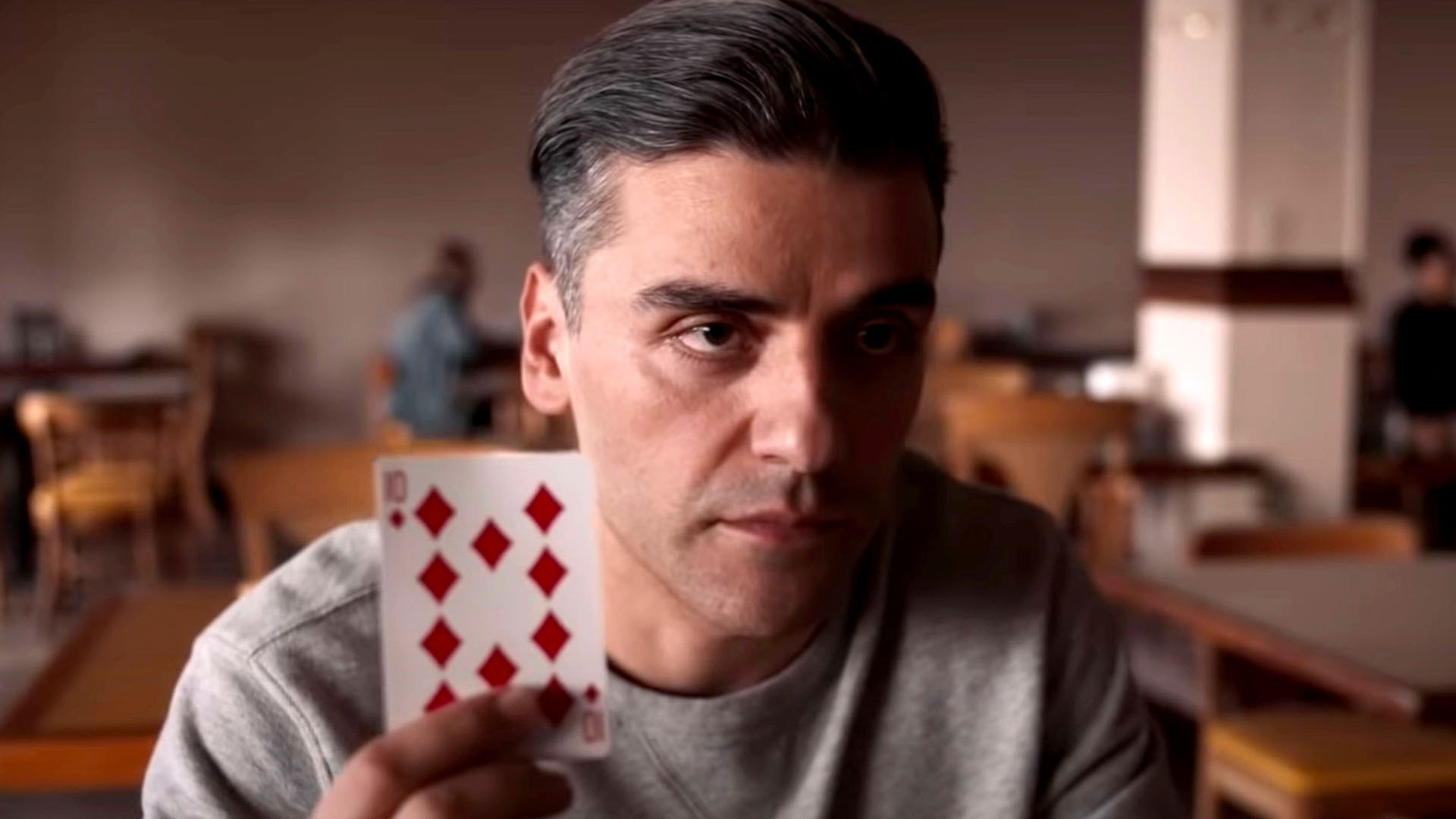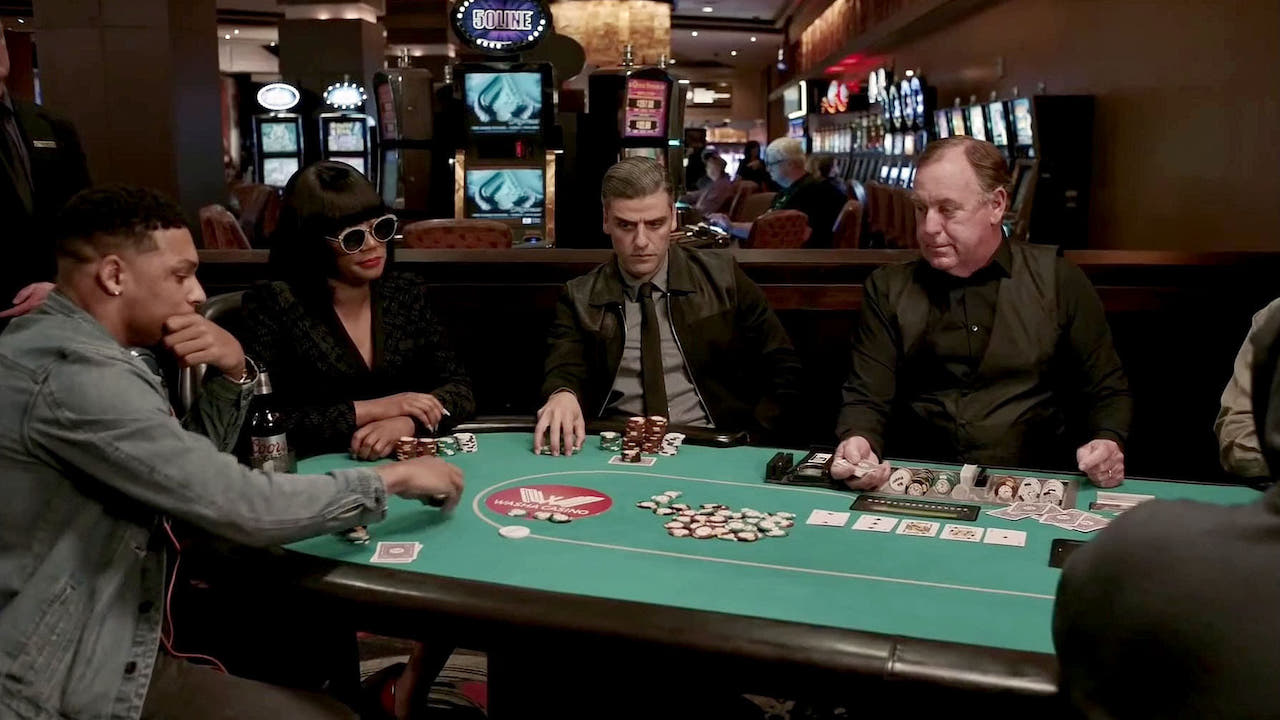Oscar Isaac gambles on redemption in Paul Schrader’s provocative The Card Counter

You can win big but you can never escape your past in The Card Counter, Paul Schrader’s latest tale of fate, faith, and guilt. Travis Johnson reviews this provocative character drama.
Are we only the worst thing we’ve ever done or can we transcend our past transgressions? This is the question at the heart of The Card Counter, the latest film from writer and director Paul Schrader. It’s a challenging, even unforgiving film, but a fascinating one.
Oscar Isaac is the titular card counter William Tell, a roving gambler travelling from casino to casino: careful to only ever win enough to cover his expenses, never bringing himself to the attention of the pit bosses. Attention is something he avoids whenever possible.
What he values is control and anonymity, to the point of cloaking his hotel rooms in white sheets before he sleeps to eradicate all possible individual details. He has no friends, no hobbies. He gambles, he drinks a little, he keeps a journal of his thoughts.
This is clearly a man with past trauma and self-control issues, and their exact nature starts to become apparent when he’s recognised by a young man, Cirk Baufort (Tye Sheridan). Cirk’s father was a torturer at Abu Ghraib—and so was William. Cirk’s father abused his wife and son until he finally took his own life; William spent eight years in military prison.
But the real villain, from Cirk’s point of view, is retired Major John Gordo (Willem Dafoe), the civilian consultant who ran the “enhanced interrogation” program and avoided any penalties. Gordo now lectures at security conventions held in the same hotels and casinos Tell haunts. Cirk wants to torture Gordo to death. Tell instead takes the younger man under his wing and teaches him the way of the low stakes card hustler.

Stark, minimalist, and unyielding—but you could say that about so many Paul Schrader films. Many filmmakers get accused, generally incorrectly, of making the same movie over and over again, but Schrader is a dog with a bone when it comes to issues of fate, faith, guilt, redemption—stoic masculinity’s inevitable failure to keep a lid on the awful, primal urges that drive us all.
Look at Taxi Driver, look at First Reformed, and now look at The Card Counter, with Isaac’s carefully coiffed, besuited gambler tentatively reaching for a better life for himself, only to be reminded in the most devastating way that, as Faulkner said, the past is never dead; it’s not even past.
Tell’s moral crisis is set against a backdrop of queasy, glitzy casino floors and cheap motel rooms—punctuated by sweaty nightmares of torture and degradation. His possible redemptive future is represented by Tiffany Haddish’s svelte stable boss La Linda, a woman who stakes gamblers for a cut of their winnings and with whom he has a palpable emotional connection.

With her backing, Tell has a chance to win enough money to cover Cirk’s student loans at the World Series of Poker tour and set the kid on a straighter path. But competing in such a high profile competition brings unwanted attention and though Dafoe’s Gordo is kept largely offscreen, his shadow looms over everything.
The Card Counter is by no means comfortable viewing, but it’s a serious and provocative film, an act of cinematic moral inquiry from an artist drawn to re-interrogate the same themes again and again. Is it markedly different from Schrader’s prior body of work? Not really, but in chipping away at his obsessions Schrader is gradually drawing closer to…something. Some kind of answer or apotheosis or revelation.
I don’t know if he got there with The Card Counter, but it’s rewarding to walk a few more miles with him on whatever strange philosophical journey he’s undertaking.




















